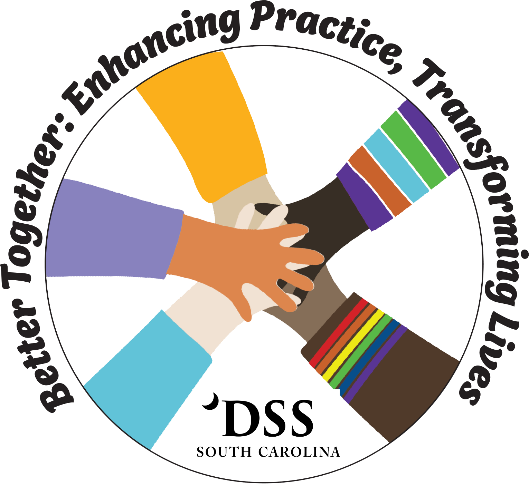The South Carolina Department of Social Services is the state agency charged with administering the Supplemental Nutrition Assistance Program (SNAP) and the Temporary Assistance for Needy Families (TANF) program.
SCDSS encourages the public to report any fraudulent use of public assistance dollars through our fraud hotline or by clicking here.
FRAUD HOTLINE 1-800-616-1309
A large part of Program Integrity is ensuring that the agency is administering assistance programs in accordance with federal regulations by:
- Providing benefits to those who are eligible for them, and reducing improper payments. Improper payments can be a result of client error, agency error, or an intentional program violation/fraud.
- Ensuring that individuals and families who are eligible for benefits get them timely (within 30 days, unless the household meets the criteria for expedited eligibility, which must be done in 7 days).
DSS has taken a proactive approach to preventing, detecting, and prosecuting benefit misuse and fraud within our state. South Carolina remains a leader and innovator in SNAP and TANF Program Integrity, in the Southeast and throughout the nation.
Some of the strategies DSS has employed important strategies to prevent fraud and misuse include:
- Providing ongoing training to eligibility workers to ensure they are up-to-date on the latest policies and procedures in an effort to prevent fraud at the inception of the process.
- Providing ongoing training to benefit integrity employees so they have the information necessary to refer cases for investigation by state and federal law enforcement partners;
- Using Facebook, Twitter, and Craigslist to crack down on fraud in the state; and
- Collaborating with law enforcement across the state to provide training on how they can spot, investigate, and refer for prosecution retailers and individuals committing SNAP fraud in their local areas.
Investigating Reports of Fraud
Many of the fraud investigations conducted by DSS are tied to a tip that was provided by the public through the fraud hotline or fraud reporting website.
DSS investigates fraud tips for several types of abuses of public resources, such as:
- Filing a false application for a SNAP/TANF benefits.
- Not reporting correct household members (example: spouse or children).
- Not reporting income of household members (examples: job, self-employment, unemployment, child support).
- Trafficking of SNAP benefits (trading and/or selling benefit cards for cash, tobacco or alcohol, or buying ineligible nonfood items).
Penalties for SNAP Fraud
Individuals determined through the adjudication process to have committed an intentional program violation (IPV) will be disqualified from the SNAP program.
Intentional Program Violations occur when an individual has intentionally:
(1) Made a false or misleading statement, or misrepresented, concealed or withheld facts; OR
(2) Committed any act that constitutes a violation of the Food Stamp Act, the Food Stamp Program Regulations, or any State statute for the purpose of using, presenting, transferring, acquiring, receiving, possessing or trafficking of coupons, authorization cards or reusable documents used as part of an automated benefit delivery system (access device).
SNAP Disqualification Offenses and Penalty Time Frames
- First offense
- 12 Months
- Second offense
- 24 Months
- Third offense
- Permanent
- First offense of buying illegal drugs with SNAP benefits
- 24 Months
- Second offense of buying illegal drugs with SNAP benefits
- Permanent
- First offense convictions by a federal, state, or local court for trafficking benefits of an aggregate amount of $500 or more
- Permanent
- An individual found to have made a fraudulent statement or representation with respect to the identity or place of residence of the individual in order to receive multiple SNAP/food stamp benefits simultaneously
- 10 Years
- Conviction of buying or selling firearms, ammunition or explosives with SNAP benefits
- Permanent

